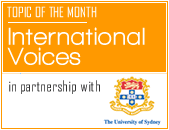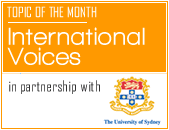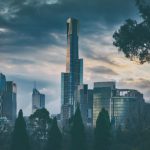Little Reporting for Queers
Monong Rao | September 14, 2009

In 2004, same-sex marriage was banned in Australia; the only case where this has happened in a first-world industrialised country. Both Liberal and Labor parties voted for the ban. As a result, homosexuals are deprived of their right to marry the ones they love. Today, those who call themselves “queers” are suffering increasing amount of pressure from their “normal” social peers.
On 1 August, the largest demonstration in support of same-sex marriage in Australian history took place. In order to put more pressure on the ALP government to end its homophobic ban on same-sex marriage, thousands of supporters of same-sex marriage marched through Sydney from Town Hall to Darling Harbour, demanding equal rights for gay and lesbian relationships.
 Not surprisingly, many journalists from news agencies all over the world were attracted to this eye-catching event. Though strangely, on the following day, when large photos and extensive reports were seen in many distinguished overseas newspapers and magazines; little was to be heard about the event from mainstream Australian media.
Not surprisingly, many journalists from news agencies all over the world were attracted to this eye-catching event. Though strangely, on the following day, when large photos and extensive reports were seen in many distinguished overseas newspapers and magazines; little was to be heard about the event from mainstream Australian media. It is perplexing when you think you are in a country where people enjoy “the right to know” to realise that it is not always the case. Was the lack of coverage because the topic itself was not juicy enough to attract local writers?
Journalists back in my home country of China would definitely repond with a big no-no to that question. Biggest Rally ever, sensational photos about dressed-up gays just by themselves would sell well. It seems like there are more complicated reasons beyond mere “news worthiness” why mainstream Australian media do not want to see these stories in their publications.
“We are neglected for a long time, except in the queer and left press.” Said Rachel Evans, a queer rights campaigner from CAAH.
Australian media often see themselves as watchdogs, a voice for the weak, and defenders of free speech. But it is really that free?
In this case, one senses a strong smell of media bias. The Federal government’s conservative attitude towards homosexuals frames the media bias. The silence over a major news event is surely the result of government-media relations, rather than some kind of coincidental overlook by local journalists.
That this rally received no mainstream media coverage should send out a terrifying signal that our vision of the protest could have been deceived or biased without us ever setting eyes on the event.
China’s media is somewhat notorious for serving as a lapdog rather than a watchdog for government. But since everyone in China knows information from mainstream media is carefully tailored by the government, the Chinese people have developed reflective thinking habits when processing their news.
But the Chinese media are making great leaps forward in relaxing their adherence to the restrictions inmposed upon them; apparent by the quantity of queer related reports soaring in recent years.
In China, where people have an awareness that information they receive through mainstream media is the voice of the government, people consciously analyse news reports and digest the information only after they have been de-processed it.
However in Australia, where hidden agendas are at work, people are drawn deep in the belief that the media is unbiased. Australians have slowly lost their ability to critically analyse journalism.
Two weeks ago, as I stood under the “I have a dream” fresco in Newtown, collecting signatures to submit in pleading for the legalisation of same-sex marriage, a middle-aged woman passed by and said, “I believe in husband and wife and I feel sorry for you.” She turned down the request for a supporting signature and walked away.
The lady had probably mistaken me for a lesbian. She probably thought it was a fault with my nature that she should feel sorry for. But the truth is, I feel sorry for these people or this nation as a whole, who are undoubtedly blinded for what they do not see or read everyday.
Media bears incredible responsibility to help people unveil the curtain of prejudice. In this regard, Australia still has a long way to go.
Monong Rao is a Beijing based journalist. She completed her undergraduate qualifications in Shanghai and is currently a Masters student at the University of Sydney majoring in Media Practice.
SHARE WITH:














huangjingbb
September 15, 2009 at 1:33 pm
I think you should see more and think more. 🙂
a Chinese young girl in Australia,saw the unfairness,and wanted to fight againest it. I apreciate your courage, but knowing a country need you to do much more work than just be angery.I want to know about Australia through you, so work hard and think deeply.
alison gordon
September 16, 2009 at 3:59 am
on the contrary…
From my solitary point of view, I actually think Australia is quite accepting of the gay lifestyle.
Sure, we don’t recognise gay marriage, but aside from the overall prejudice some people may have towards "being gay", they are largely able to celebrate their choice. The Mardi Gras and a range of "gay friendly" nightspots are some examples.
Discrimination towards any minority group, whether it be of a sexual, religious or cultural nature, will always exist. You have to accept that some individuals, and media as you have pointed out, will never "approve" of the gay lifestyle, however accepting they may seem. This could be for a range of personal reasons. People have to respect that.
I know some people like to think Australians prefer to discriminate, but I think we are a bit hard on ourselves.